Election time is approaching and the political and social climate is perhaps more charged than in 2016, when I first wrote this article. I decided to repost it because of its validity. I hope you find it inspiring to focus on difference as a source of knowledge, growth, and connection.
First published March 1, 2016
Want to Decrease Prejudice? Discriminate More
It is election time. A moment that I feel like not following the news. I see disconnect and competition. These events generate many things, including conversations about diversity and the growing need to acknowledge its existence in our societies. But when it comes to actually embracing others, we –as a community- are failing. There is tension, and I’m not talking about only social tension. We have physical tension in our bodies: we don’t know what to ask or how to address differences. We are afraid of offending others and being politically incorrect.
So how do we, as a community, embrace our differences? Mindfulness.
Mindfulness is a word and a practice that is in vogue, and for good reason. To live mindfully means to notice life, to be involved, to observe. It is to stop the “auto-pilot mode” in our lives. A mindful approach to understanding differences will allow us to live, work, and be more productive for our diverse communities. More discrimination, meaning actively noticing and being more present with all of differences between ourselves and our neighbors, will enable us to embrace diversity in our groups and use this diversity as an opportunity to learn more about ourselves.
It is not enough to accept everyone as equal. It is better—dare I say—to accept the fact that we are NOT equal. We need to recognize the concrete benefits of diversity to our society, to all of us. We should be curious about the perceptions of those that seem different from us. We all are part of a spectrum, a continuum of difference. Our society should not function as a “me” versus “you” experience—it is much more fluid than that. Every encounter with another individual is an opportunity to view ourselves from another’s perspective.
By discriminating more, we can more mindfully embrace others and decrease our personal prejudices. Take, for instance, the experience of meeting a Mexican woman for the first time. Likely, the categories “Mexican” and “Woman” (and the category “Mexican Woman”) would start informing our interaction with her. We have learned and internalized meaning about skin color, nationality, sexual orientation, gender, age, physical and mental ability. The mere act of focusing on differences makes us mindful, yet we should question the categories -and meanings- we have internalized not to reinforce prejudices against her. Speaking to this woman, what assumptions do you make? Do you use different vocabulary? When you learn she is Mexican, how does that impact your impression of who she is? Being aware of these differences can inform us of our own assumptions and points of view—and help us actively reduce any negative “otherness” we assign.
Dr. Ellen Langer, Professor of Psychology at Harvard University, has studied mindfulness and its applications to different aspects of life. Dr. Langer’s research begins from a frame of assuming sameness to actively noticing new things. However, for many individuals, finding “otherness” incites negative internal feedback. But what would our society look like if started our interactions by assuming the differences in others, and then very thoughtfully and mindfully considered the categories and meanings we assign to these differences?
I challenge you—as an individual, an employee, a manager, a parent—to discriminate more. Be aware of the differences of the individuals around you. Embrace how they impact your behavior and your thoughts. Be mindful of their perspective. Together, we can help Cincinnati rise to the caliber of a Queen City.

